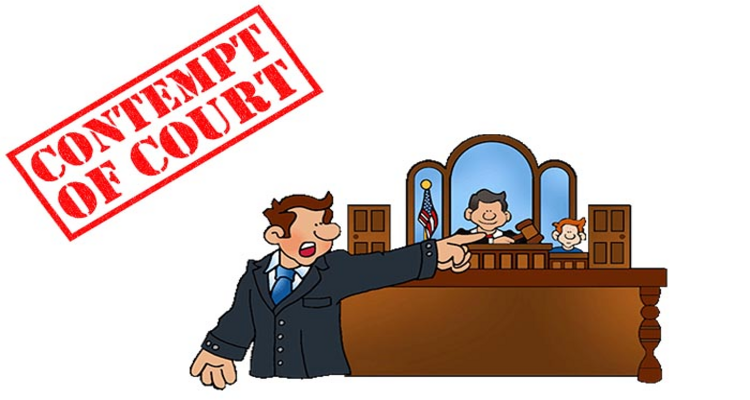
“Contempt of Court” is a broad term encompassing behaviors within legal proceedings that undermine the judicial process or hinder individuals from seeking resolution through the courts. This term often implies disrespect or disobedience toward the court, potentially resulting in punitive measures such as fines or imprisonment if deemed guilty of contempt by the judge.
In India, the definition of Contempt of Court is outlined in section 2(a) of the Contempt of Courts Act of 1971, which categorizes it broadly as civil contempt or criminal disregard. Two sections in India’s Constitution, Sections 129 and 142(2), address contempt of court.
Section 129 designates the Supreme Court as the ‘Court of Record,’ granting it the authority to prosecute itself for contempt. A ‘Court of Record’ maintains official records of its proceedings and decisions, which hold undeniable authority and validity. Any actions contradicting these records are considered Contempt of Court.
Section 142(2) empowers the Supreme Court to enforce attendance, produce records, or punish individuals for contempt when Parliament legislates on the matters outlined in clause 1 of the article. However, this authority does not infringe upon the right to personal liberty.
Defenses available in the Contempt of Courts Act, 1971:
1. Innocent Publication: According to Section 3, if individuals publishing content had no reasonable grounds to believe that a proceeding was pending at the time of publication, it is considered “innocent.”
2. Fair and Accurate Report of Judicial Proceeding: Section 4 states that publishing a fair and accurate report of a judicial proceeding or any stage thereof does not constitute contempt of court.
3. Fair Criticism: Under Section 5, Indian citizens have the privileged right to express what they believe to be true and voice their opinions freely.
4. Complaint Against Presiding Officer: Section 6 specifies that individuals are not guilty of contempt of court for making statements in good faith regarding the presiding officer of any subordinate court.
5. Truth as a Defence: Section 13 allows the court to consider truth as a valid defence in contempt proceedings if it serves the public interest or is made in good faith.
6. Apology: As per the proviso to Section 12(1), the accused may be discharged or the punishment may be remitted upon making an apology satisfactory to the court.
Read More: Supreme Court, Delhi High Court, States High Court, Other Courts, International




